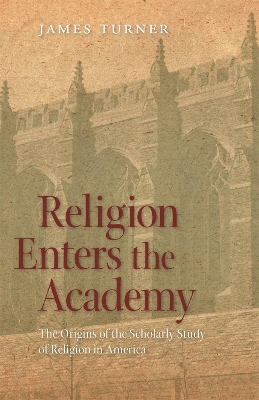Religious studies-also known as comparative religion or history of religions-emerged as a field of study in colleges and universities on both sides of the Atlantic during the late nineteenth century. In Europe, as previous historians have demonstrated, the discipline grew from long-established traditions of university-based philological scholarship. But in the United States, James Turner argues, religious studies developed outside the academy.
Until about 1820, Turner contends, even learned Americans showed little interest in non-European religions-a subject that had fascinated their counterparts in Europe since the end of the seventeenth century. Growing concerns about the status of Christianity generated American interest in comparing it to other great religions, and the resulting writings eventually produced the academic discipline of religious studies in U.S. universities. Fostered especially by learned Protestant ministers, this new discipline focused on canonical texts-the "bibles"-of other great world religions. This rather narrow approach provoked the philosopher and psychologist William James to challenge academic religious studies in 1902 with his celebrated and groundbreaking Varieties of Religious Experience.
- ISBN13 9780820339665
- Publish Date 15 March 2011 (first published 1 January 2011)
- Publish Status Active
- Publish Country US
- Imprint University of Georgia Press
- Format eBook
- Pages 132
- Language English
